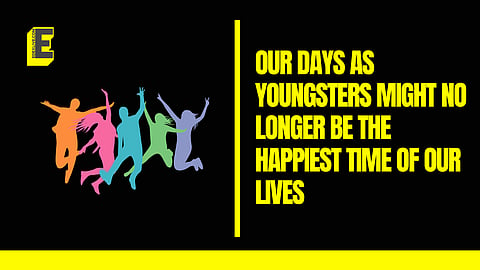

For more than half a century, the midlife crisis marked by peak misery between the ages of 40 and 50, has been a defining feature of Western society. However, according to experts, this pattern is rapidly changing, reported The Guardian, today, March 3.
A new paper commissioned by the United Nations (UN) and authored by leading academics Jean Twenge and David Blanchflower warned that a growing youth mental health crisis across six English-speaking countries is reshaping the traditional trajectory of happiness throughout life.
Historically, happiness was believed to follow a 'U-shaped curve' with carefree youth, a challenging middle age, and a more contented later life. However, well-being experts now suggest that life satisfaction is rising steadily with age instead of dipping in midlife.
Youth wellbeing in crisis
“The U-shape in wellbeing by age that used to exist in these countries is now gone, replaced by a crisis in wellbeing among the young,” stated the study, published by the US National Bureau of Economic Research.
Analysing survey responses from the United States (US), United Kingdom (UK), Ireland, Australia, Canada, and New Zealand, researchers found that life satisfaction and happiness among young people have declined over the past decade, particularly among young women.
Role of social media and tech?
One key factor highlighted in the study is the rise of smartphones and social media. Researchers observed that the decline in happiness closely aligns with increased internet usage, with similar patterns appearing not only in the six English-speaking countries studied but also in other nations worldwide.
Other studies have linked the youth mental health crisis to broader societal issues such as intergenerational inequality, unregulated social media, insecure employment, and the climate crisis.
Additionally, an increasing number of young people are being pushed out of the job market due to mental health conditions, further exacerbating concerns about their long-term well-being.
As happiness patterns shift, experts warn that urgent action is needed to address the growing mental health challenges faced by younger generations.
